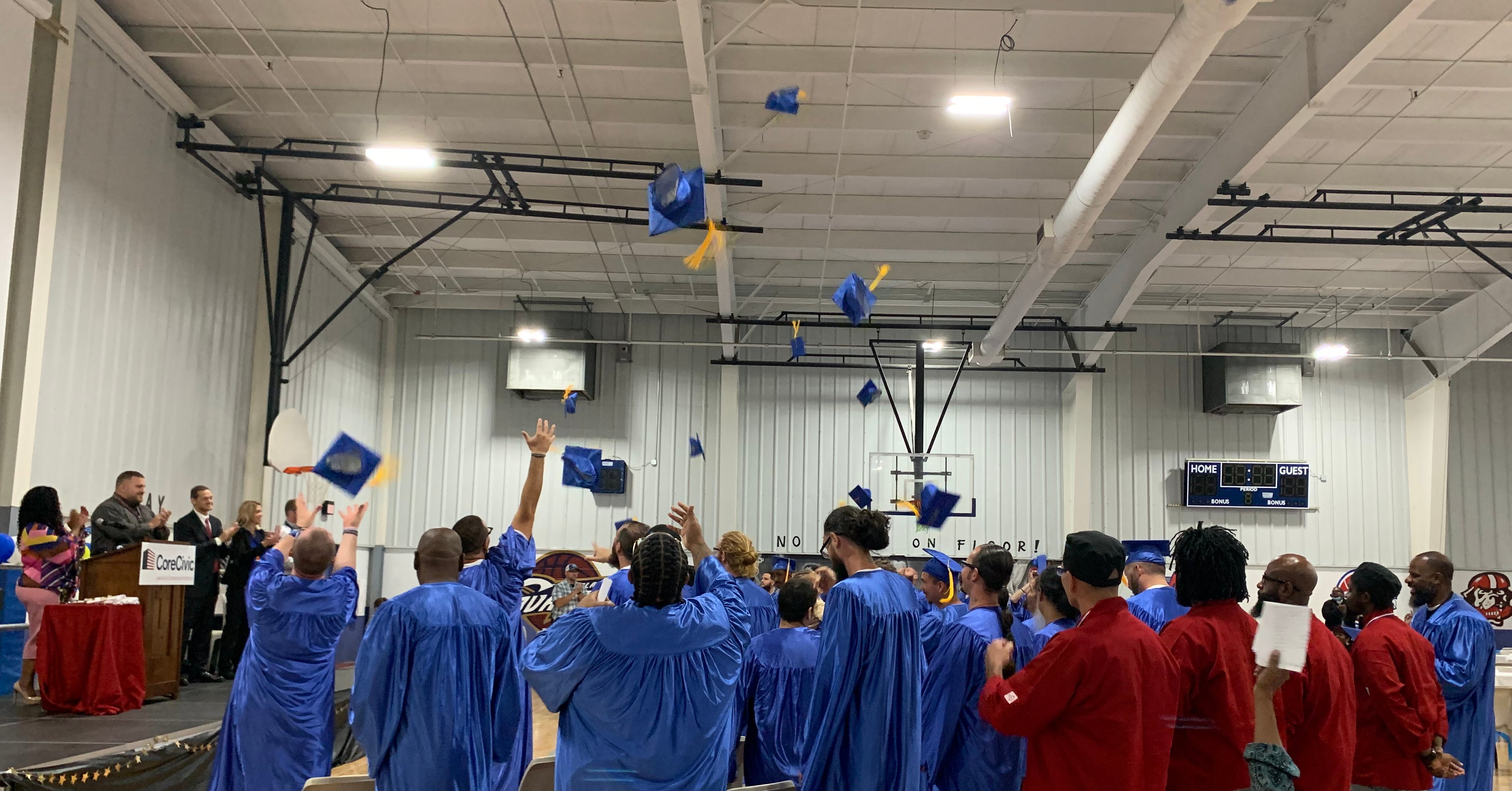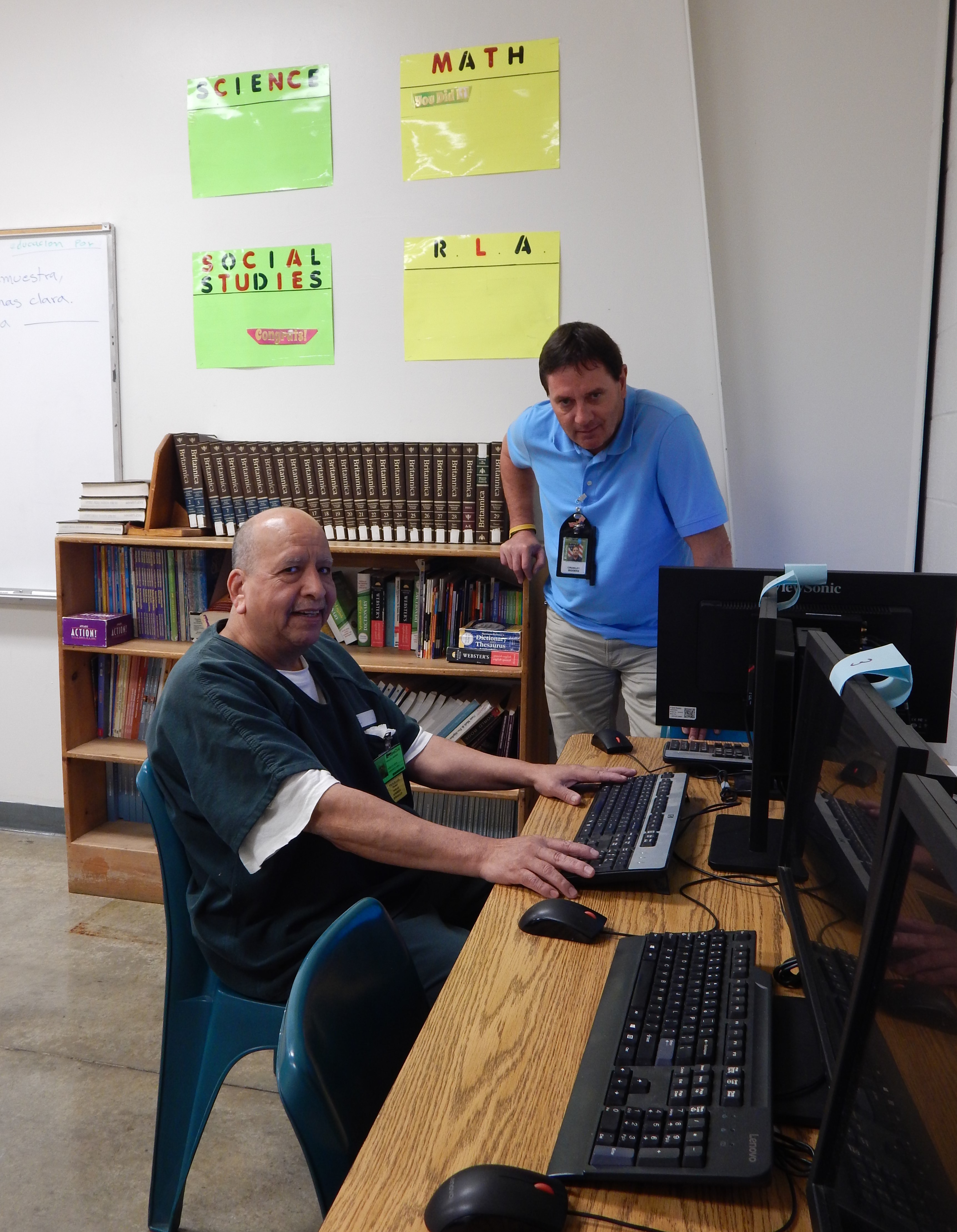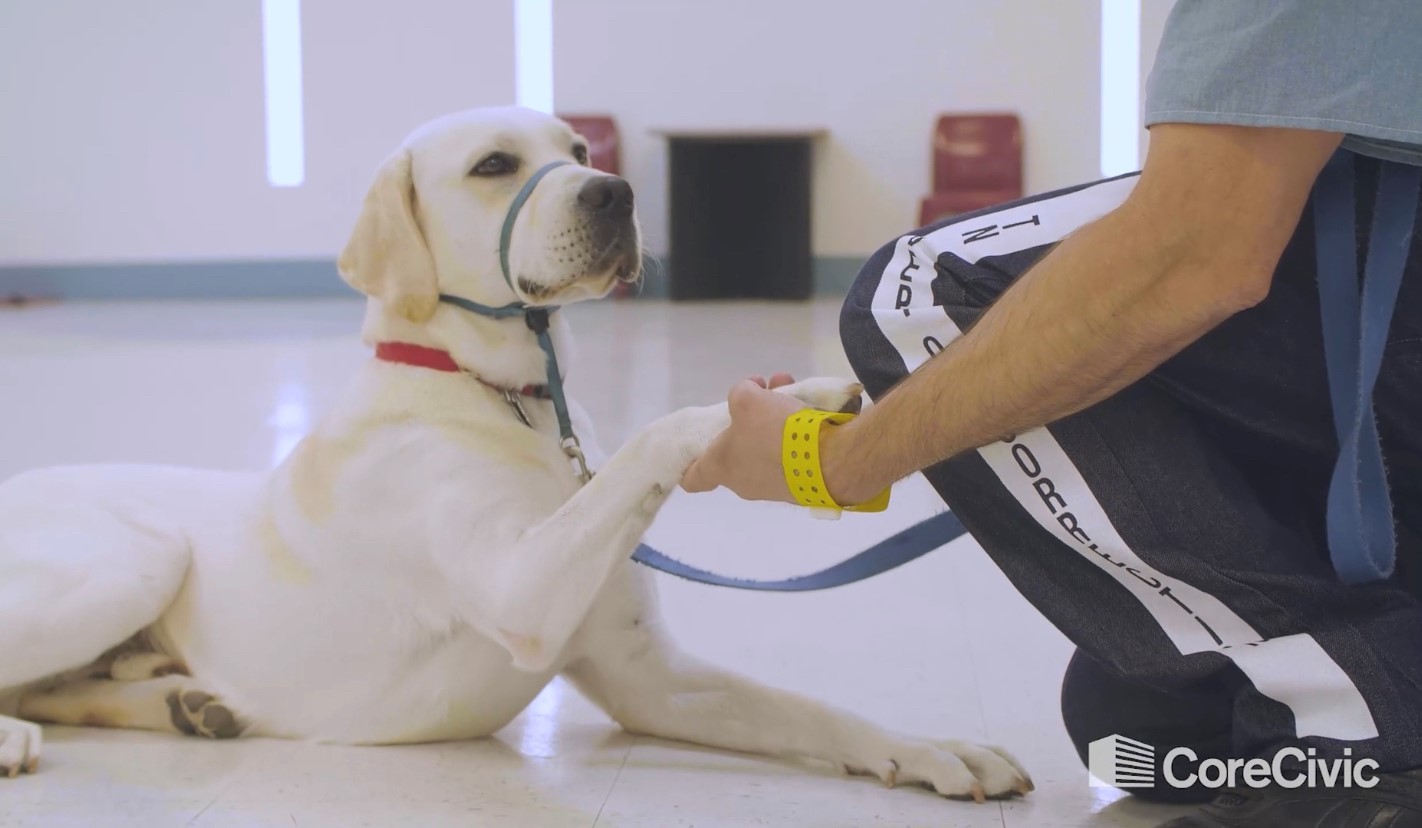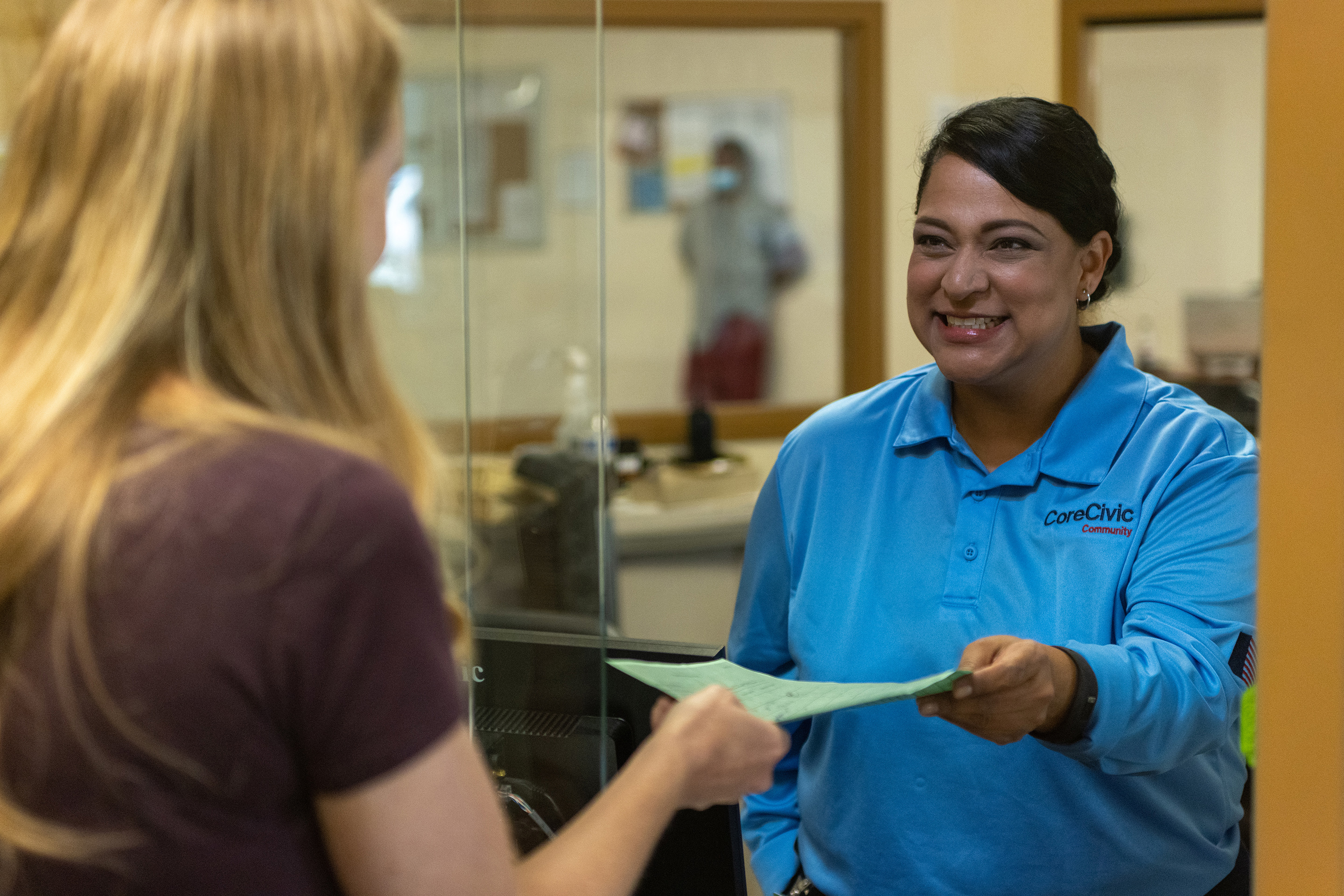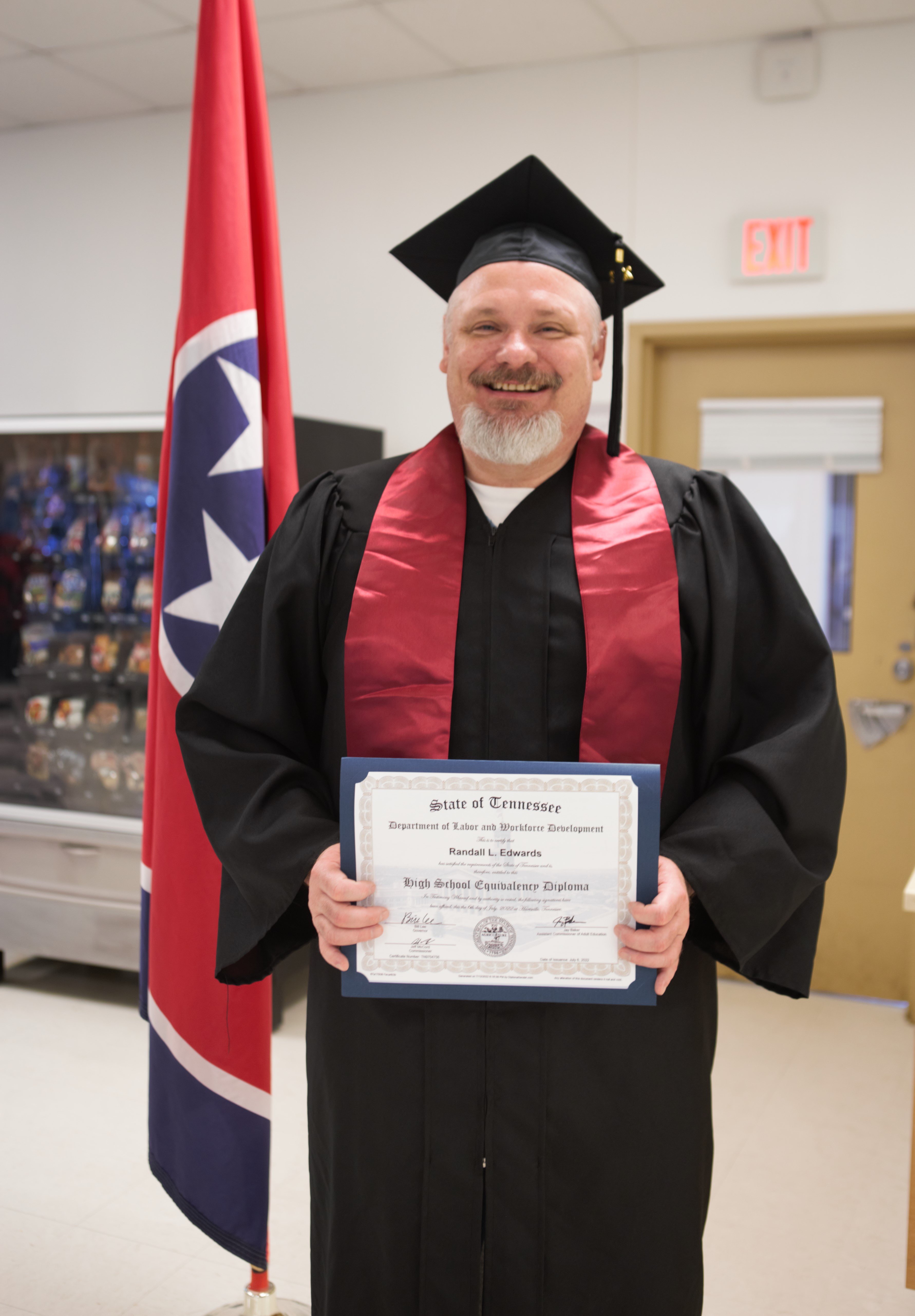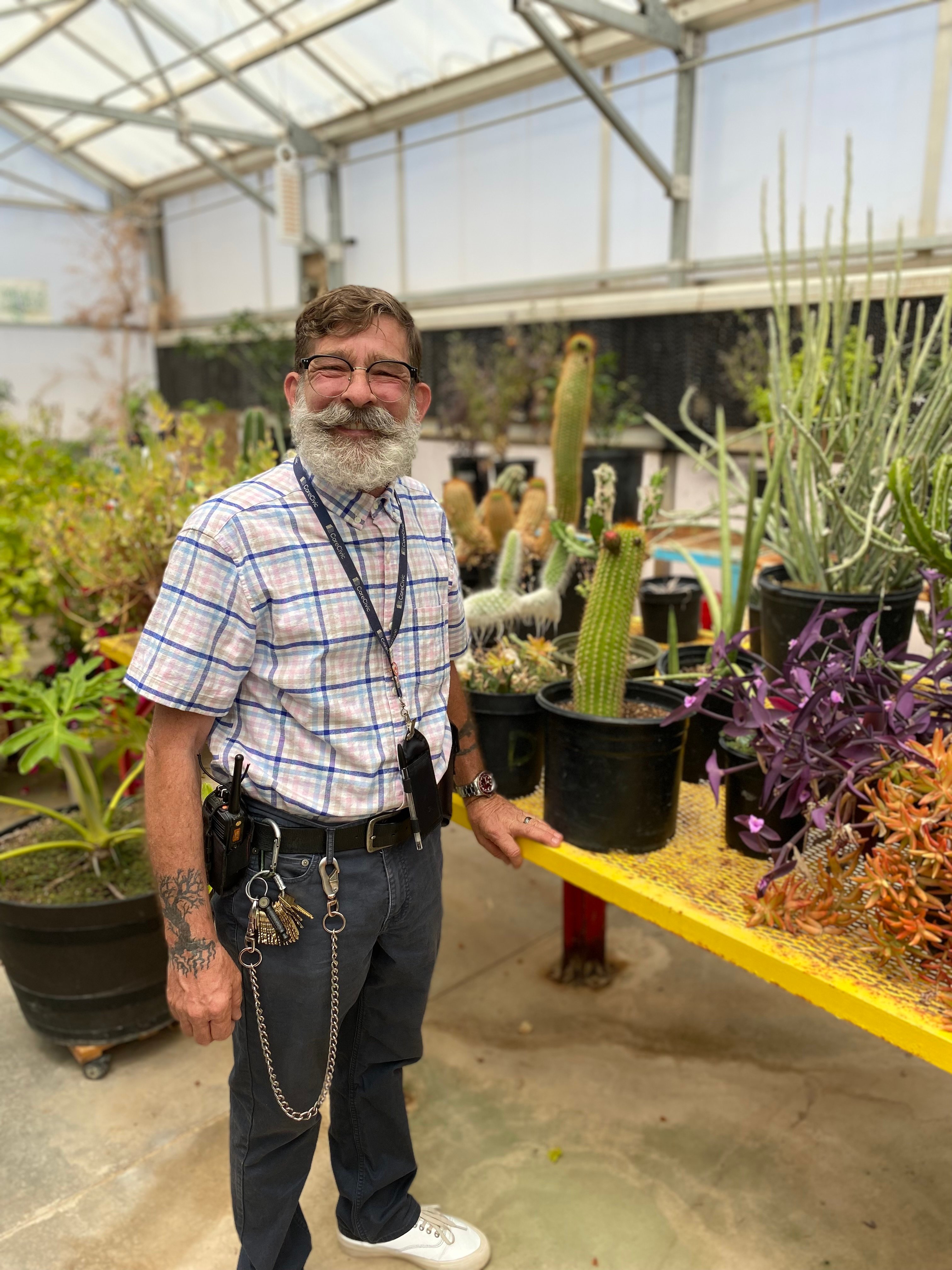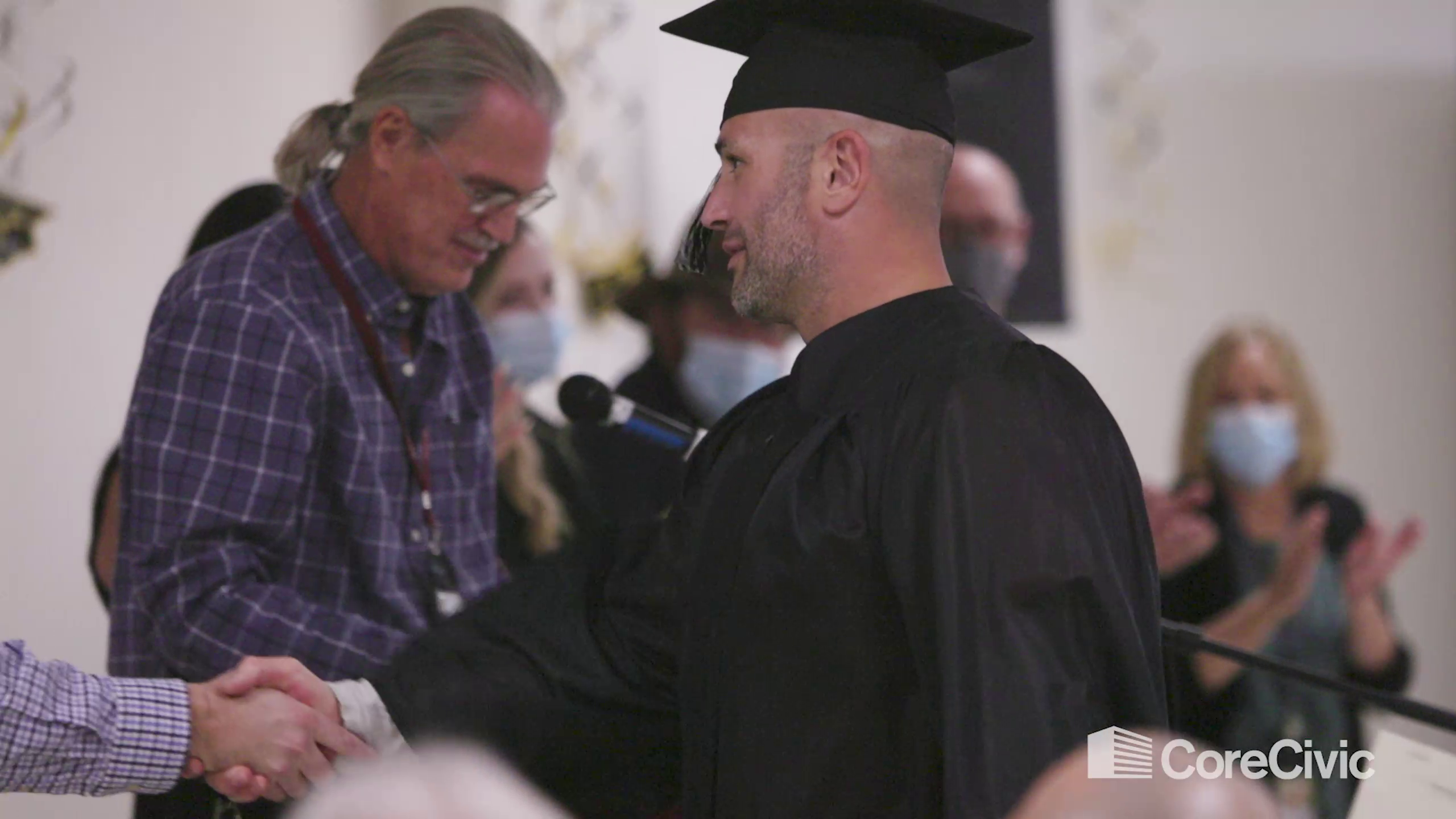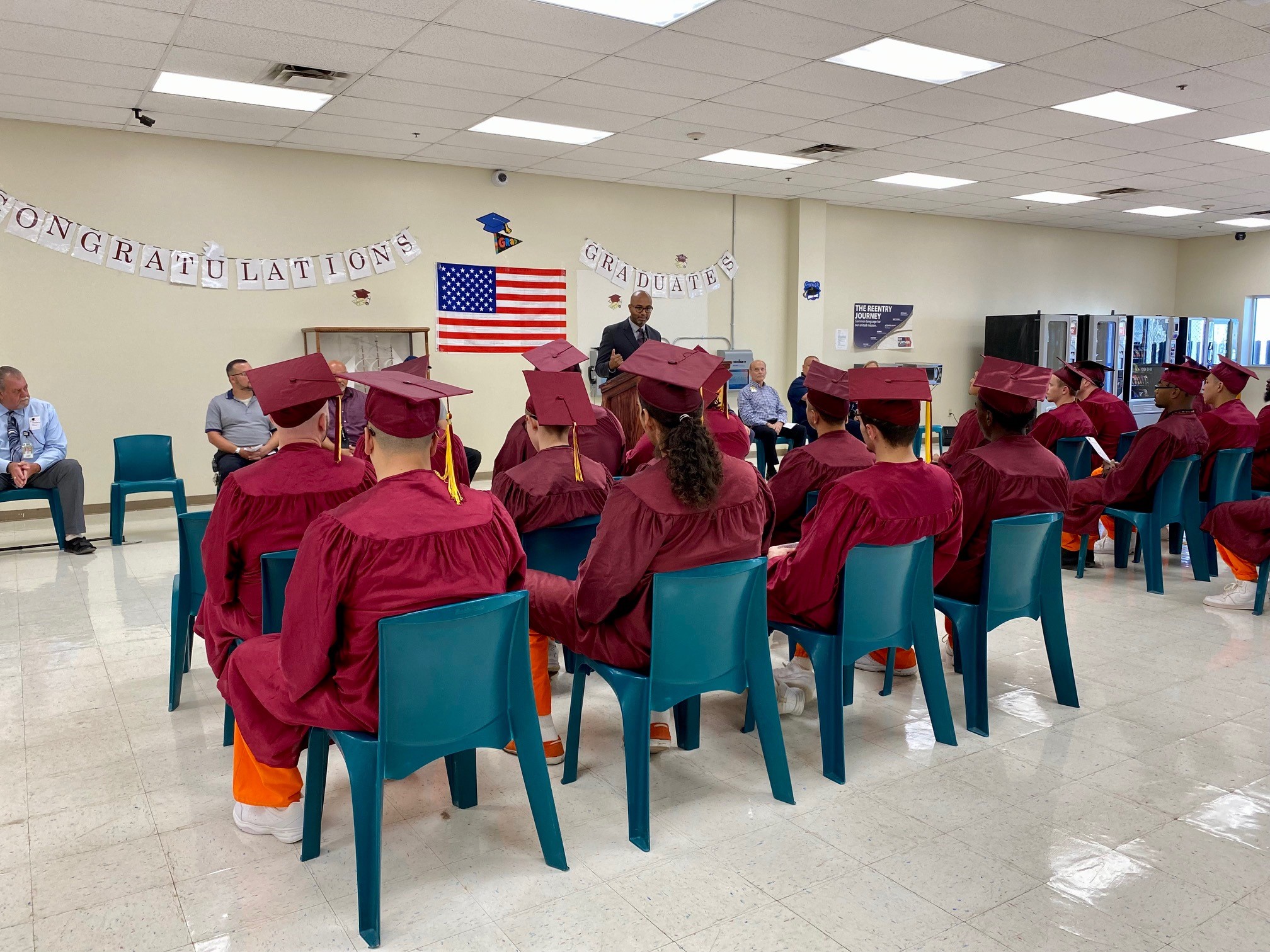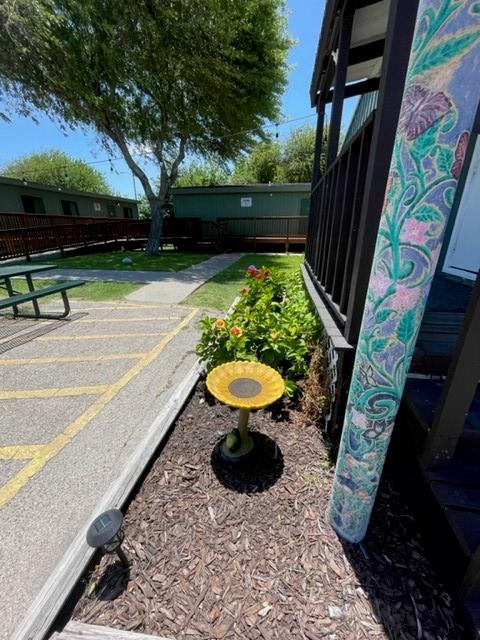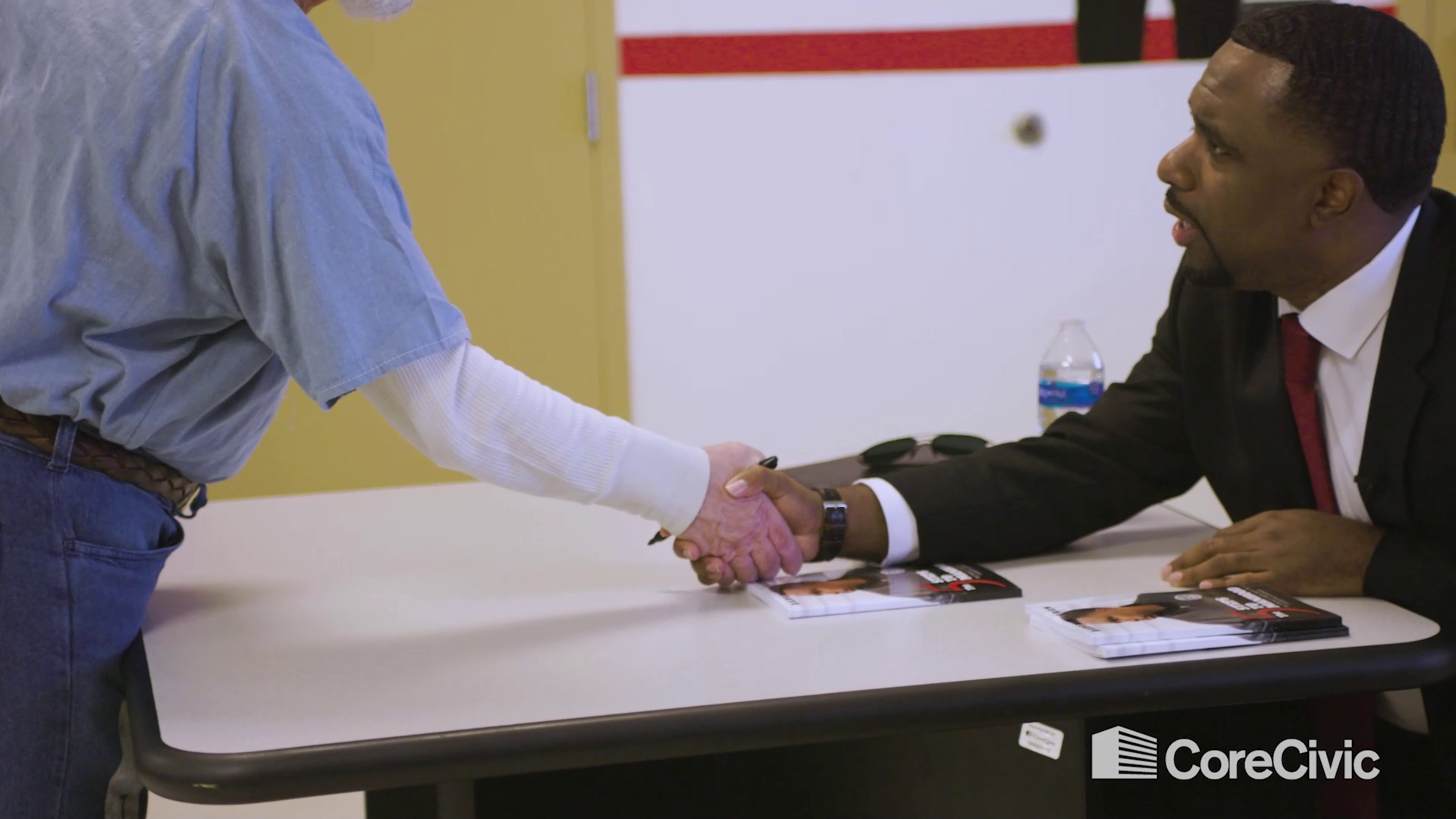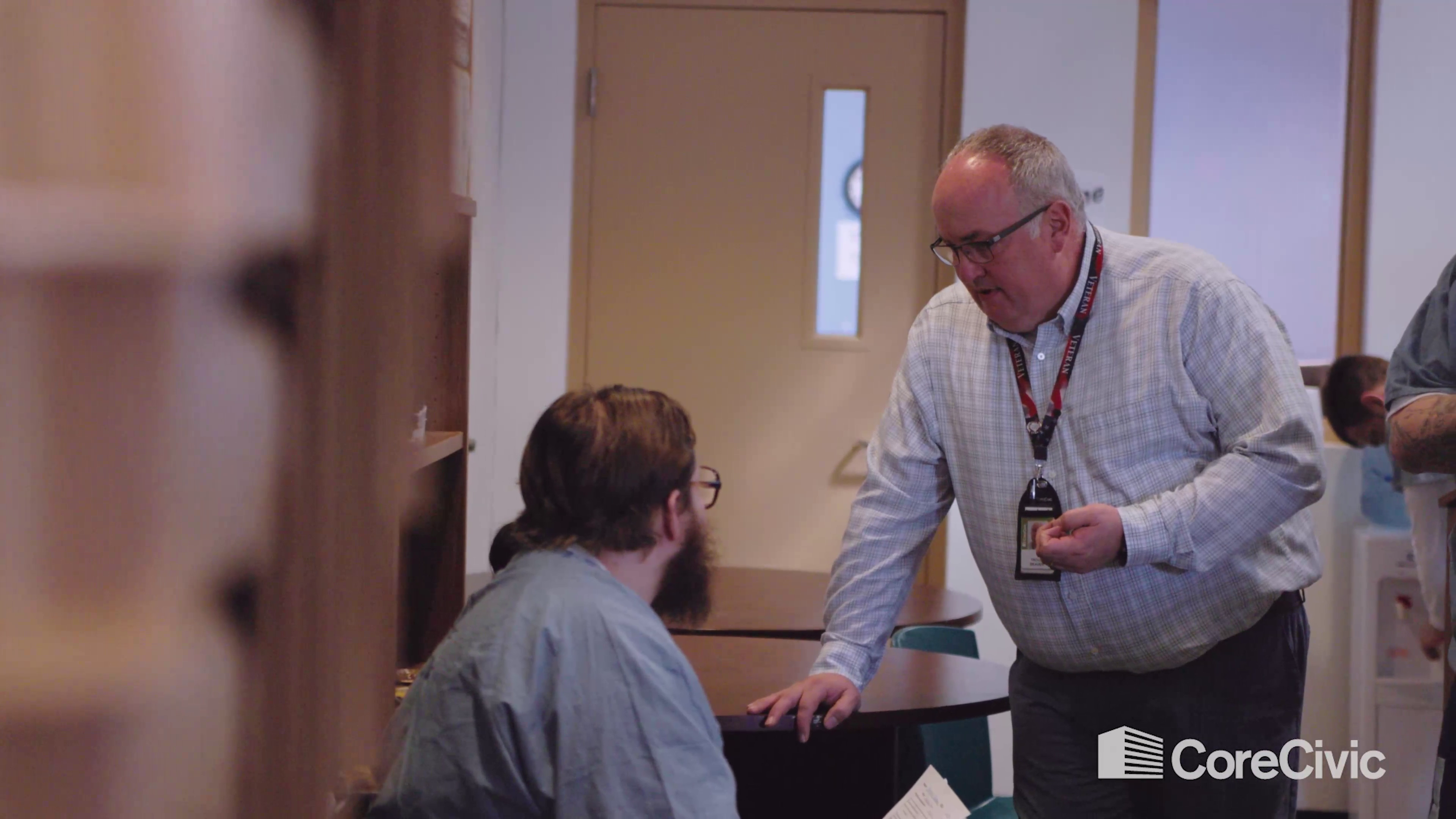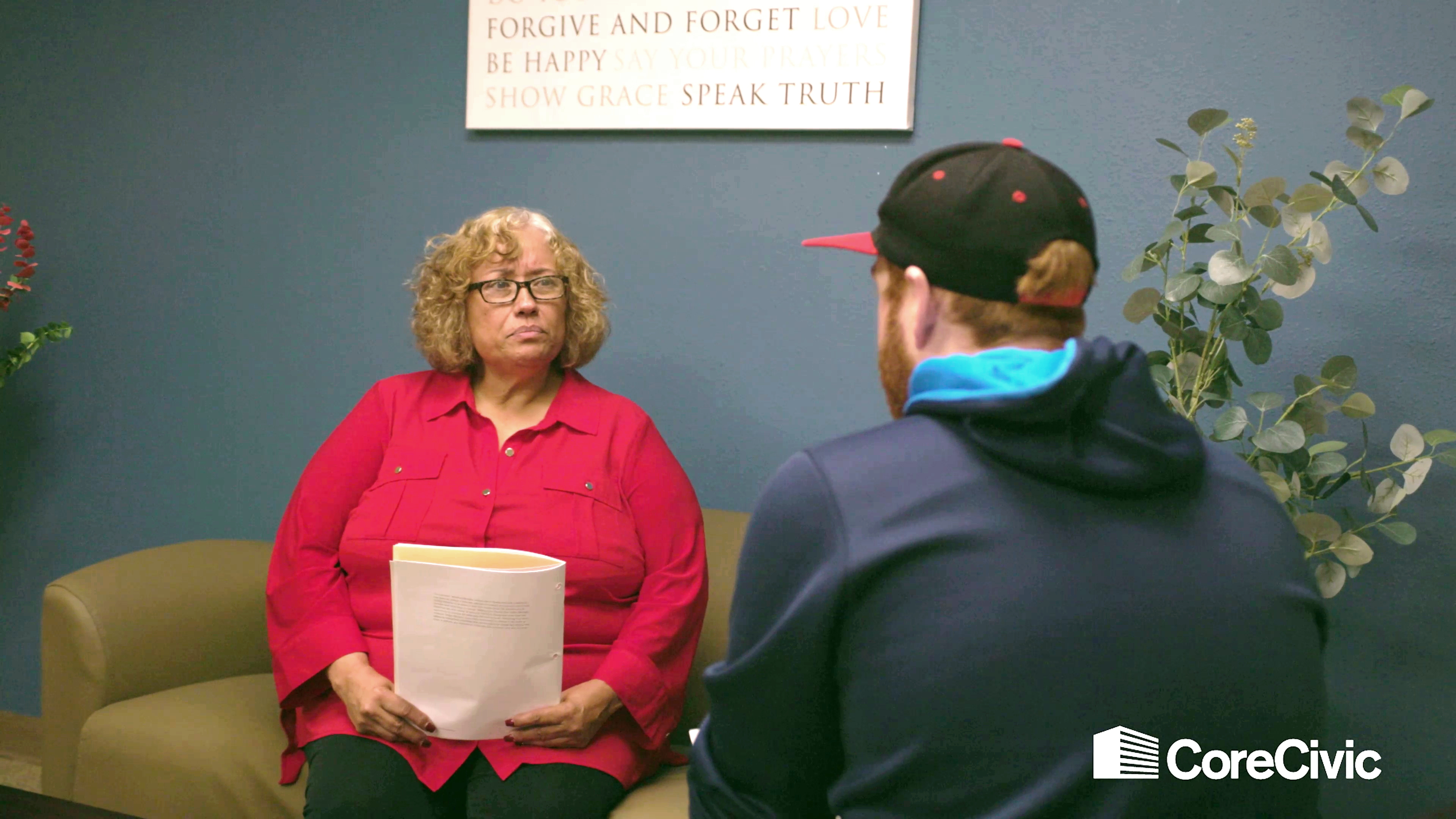CoreCivic has updated its Privacy Policy for California residents.
You can find investor-related news releases here.
Education Success in Ohio: College, GED, Vocational and Culinary Students Graduate at Lake Erie Facility
11/3/22 8:00 AM
CoreCivic's Lake Erie Correctional Institution in Conneaut, Ohio, recently hosted a graduation ceremony for nearly 70 student-inmates who were awarded a GED or a career technical education (CTE) certificate. One graduate even walked across the stage ...
Read More
Reentry Planning from Day One: CoreCivic Sets High Standard for Reducing Recidivism
10/27/22 8:00 AM
A study published by the RAND Corporation found that on average, individuals who participate in education programs while incarcerated have 43 percent lower odds of returning to prison. Additionally, the study found that every dollar spent on inmate ...
Read More
Sometimes in life, it takes two: a keen observer and a persistent underdog. Andres Hidalgo worked much of his life in the food industry prior to incarceration. Hidalgo moved to the United States from Mexico in 1985 and after becoming incarcerated in ...
Read More
Dog-Training Program Promotes Hope and Healing
10/6/22 8:45 AM
There is something special about spending your day with your furry, four-legged companion by your side. In fact, residents at CoreCivic's Hardeman County Correctional Facility in Whiteville, Tennessee, have the opportunity to do this while also ...
Read More
Top 10 Barriers to Reentry and How CoreCivic is Helping
9/15/22 8:20 AM
CoreCivic offers a variety of programs to help those in our care prepare for reentry. As part of this preparation, our reentry professionals work with each individual to address his or her unique barriers to reentry and help facilitate a successful ...
Read More
Celebrating Second Chances with Maverick City Music
9/8/22 8:00 AM
CoreCivic has recently teamed up with the Maverick City Music Initiative through a partnership that aims to celebrate second chances. This collaboration with the Maverick City Music Initiative will open new opportunities for returning citizens to ...
Read More
The reentry programming offered at CoreCivic facilities can change the lives of those in our care. From high school equivalency (HSE) diplomas to industry-recognized certificates (IRC) or post-secondary education, graduating from these programs are ...
Read More
Children who have at least one incarcerated parent are at an increased risk of psychological problems, antisocial behavior, and potentially going to prison themselves. On top of that, 92 percent of incarcerated parents are men. For these reasons and ...
Read More
A horticulture program at Red Rock Correctional Center in Eloy, Arizona, has CoreCivic residents working together while learning a new trade. The 26-week program provides students the chance to learn skills in a growing industry and walk away with ...
Read More
College Degree Programs Open Doors for CoreCivic Residents
7/21/22 8:00 AM
Graduation is an important milestone for many. This is especially true for justice-involved individuals, as they typically have a more difficult path to starting a career after release.
Read More
Recent Graduates Make the Most of Their Time in Arizona
7/7/22 8:00 AM
Recently, CoreCivic's Red Rock Correctional Center in Eloy, Arizona, held a graduation ceremony to celebrate 21 residents who earned their high school equivalency (HSE) diploma. Education is a pivotal part of our reentry programming at CoreCivic. In ...
Read More
During the past several years, there has been a shift among policymakers and reform advocates to view incarceration as an opportunity for change. With this shift in thinking comes a redefinition of what a correctional setting should look and feel ...
Read More
Becoming a Man of Integrity: Speaker Shares Father's Day Message with CoreCivic Residents
6/20/22 11:00 AM
When a justice-involved individual enters our care, it is often because they made one or several mistakes. However, those mistakes do not define them, and it is up to them to decide how the rest of their journey will unfold as citizens, employees, ...
Read More
Helping others realize their potential is truly rewarding, and it’s something CoreCivic employees get to experience on a daily basis. Every person working in a CoreCivic facility has a hand in helping those in our care become the best possible ...
Read More
Go Further Release: Supporting Residents Leaving Our Care
6/2/22 8:00 AM
Justice-involved individuals often need support once they’re released to find basic needs such as housing and employment. They also need someone who will listen and help them through the emotional and mental challenges they may experience upon ...
Read More

